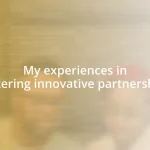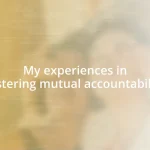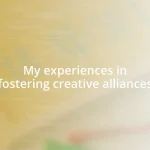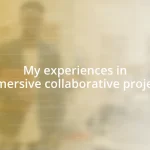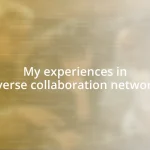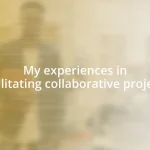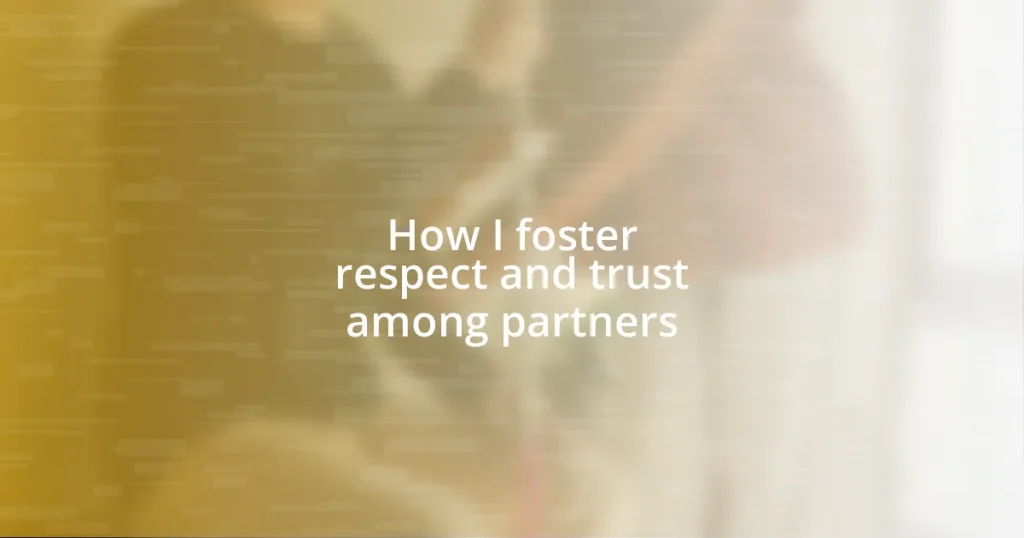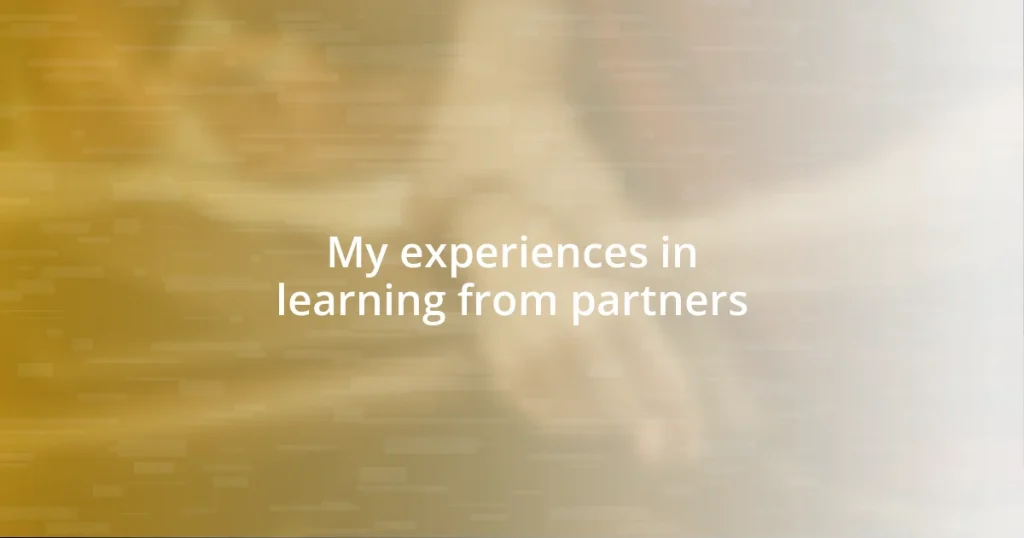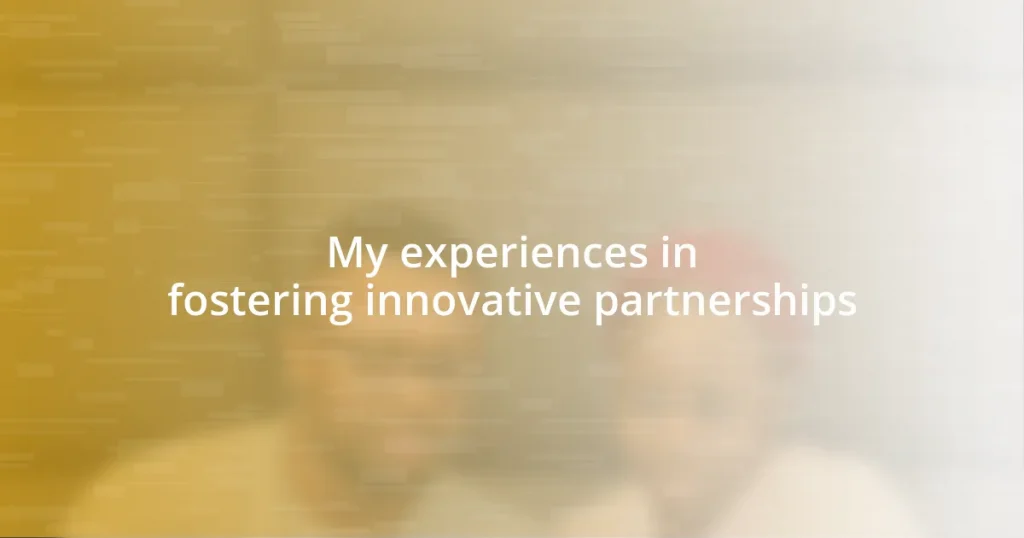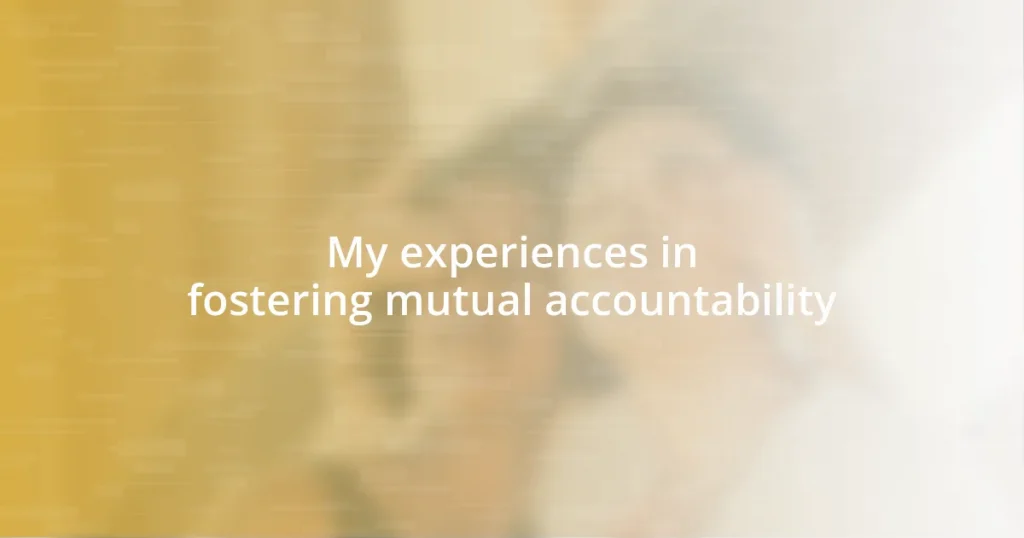Key takeaways:
- Respect is essential for healthy relationships, fostering trust and emotional safety during interactions.
- Open communication, active listening, and regular check-ins enhance understanding and deepen respect between partners.
- Recognizing and valuing differences in perspectives enriches the partnership and nurtures collaboration.
- Celebrating successes together reinforces partnership and acknowledges the shared journey, strengthening bonds.
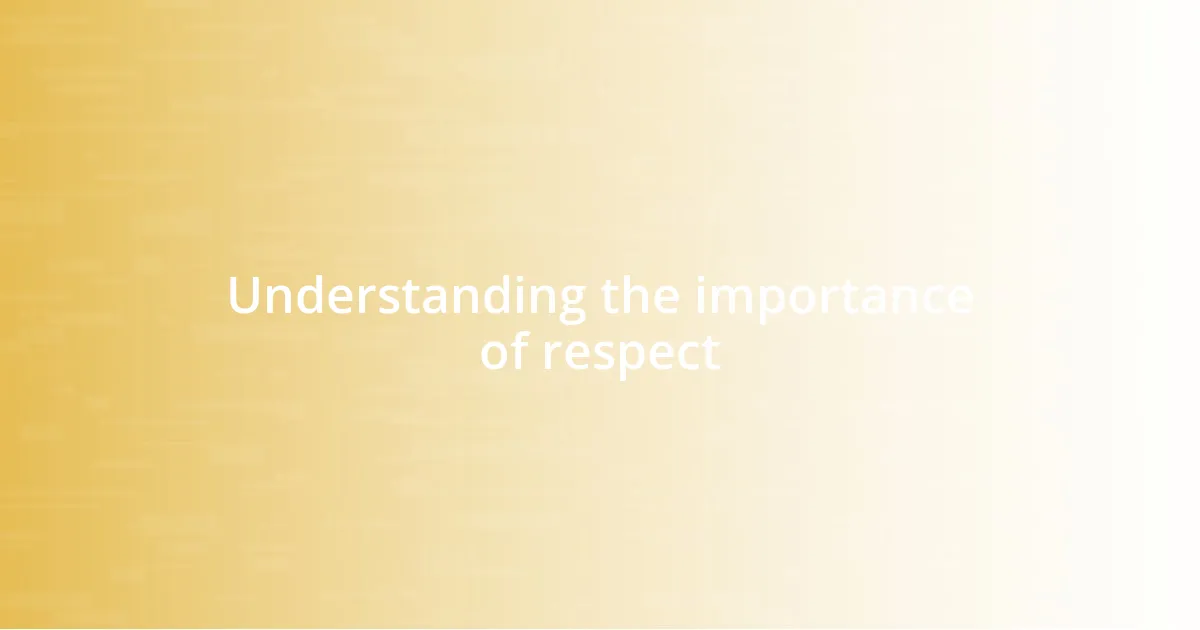
Understanding the importance of respect
Respect is the foundation of any healthy relationship, and I’ve seen firsthand how its absence can lead to misunderstandings and conflict. I remember a point in my own partnership when we hit a rough patch—neither of us was truly listening to the other, and the frustration grew. That experience opened my eyes to just how essential respect is, not just in the big moments, but in the day-to-day interactions that shape our connection.
When I think about what respect really means, I realize it’s about valuing each other’s feelings, opinions, and boundaries. It’s not always easy, is it? There have been times I’ve had to remind myself that just because I disagree doesn’t mean I should dismiss my partner’s perspective. Recognizing this has deepened my understanding of our shared humanity and made me more empathetic.
Moreover, respect builds trust, creating a safe emotional space where both partners can express their needs without fear of judgment. I often ask myself, “How can I create an environment where my partner feels truly valued?” Simple actions, like maintaining eye contact during conversations or acknowledging their achievements, go a long way. Reflecting on these moments reinforces my belief in the transformative power of respect—it’s absolutely vital for nurturing a lasting, loving partnership.
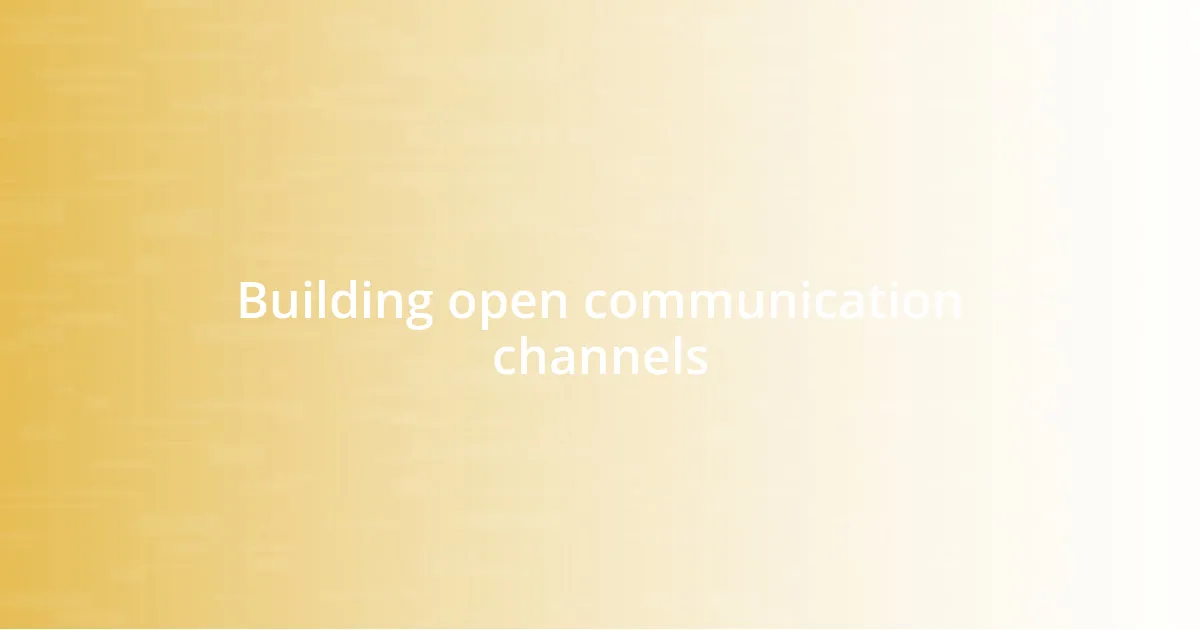
Building open communication channels
Building open communication channels is essential for fostering respect and trust. I’ve found that the best conversations often happen in casual settings—like over coffee or during a relaxed evening walk. It’s during these moments that walls come down, allowing both partners to speak openly. I remember the time my partner and I decided to dedicate Sunday mornings to just talking. Without the distractions of our busy week, we really focused on each other’s thoughts and feelings. That ritual transformed the way we communicated, making it a safe space for vulnerability.
Here are some effective strategies to enhance communication:
- Active Listening: Reflect back what your partner says to show you’re engaged.
- Regular Check-ins: Schedule specific times to discuss feelings or any concerns.
- Nonverbal Cues: Pay attention to body language, as it can convey messages beyond words.
- Safe Words: Establish a term that signals when emotions are running high and a pause is needed.
- Express Appreciation: Regularly acknowledge the little things your partner does, reinforcing a positive atmosphere.
These practices not only make communication smoother but also deepen the bonds of respect between partners.
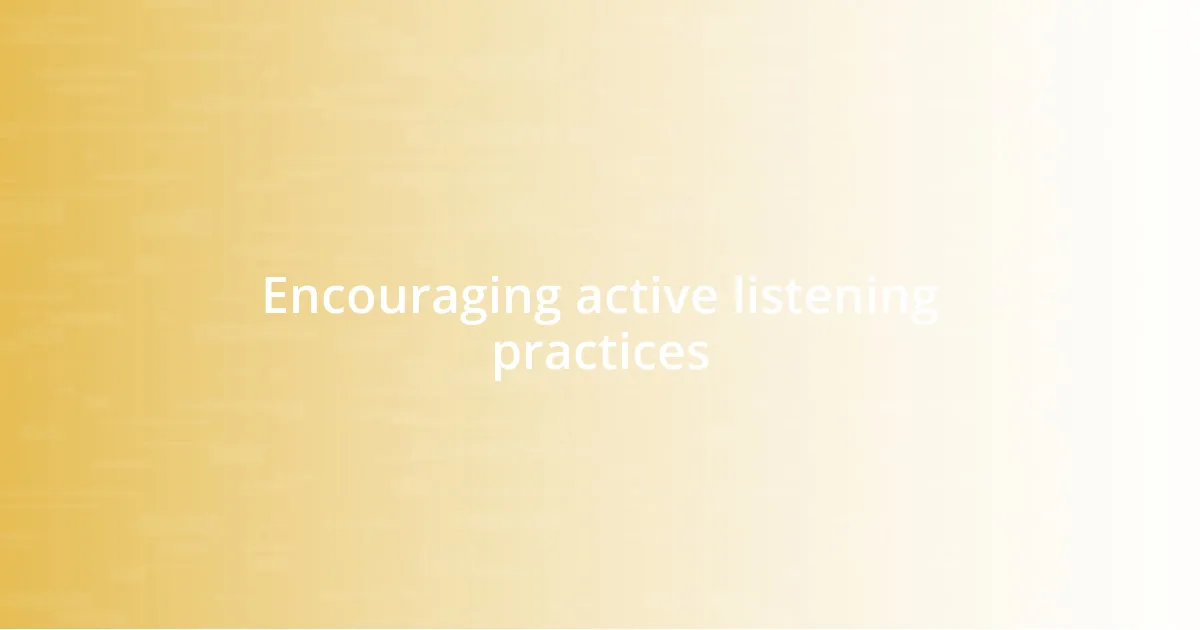
Encouraging active listening practices
Encouraging active listening is one of the most transformative practices I’ve embraced in my relationships. I remember a heated moment when my partner shared a frustration, and I initially felt defensive. However, instead of reacting, I chose to listen actively. I nodded, maintained eye contact, and echoed back what my partner expressed. That simple act not only defused the tension but also showed my partner that their feelings were valued. In those moments, I realized that listening with intention can often speak louder than any words of comfort I might offer.
Many people underestimate the power of pauses in conversation. I once had a discussion where my partner shared a deeply personal story. Instead of rushing to respond, I took a moment to process what was said before replying. This allowed me to respond thoughtfully and with empathy. In my experience, savoring those brief seconds enhances understanding and fosters a deeper connection. It’s essential to be present; distractions like phones or the television can easily derail meaningful dialogue.
I’ve also found that showing curiosity can encourage more profound discussions. When I ask follow-up questions, it signals that I’m not just hearing my partner but truly engaging with their thoughts. For example, when my partner spoke about a work challenge, I asked how it affected them emotionally. This type of inquiry often leads to richer conversations and strengthens trust over time. Active listening is all about the little moments that build our relationships into something enduring and respectful.
| Active Listening Practice | Example |
|---|---|
| Reflective Listening | “So, what you’re saying is that you felt overlooked during that meeting?” |
| Laying Down Distractions | Putting your phone away during important discussions. |
| Curiosity Through Questions | “Can you tell me more about how that made you feel?” |
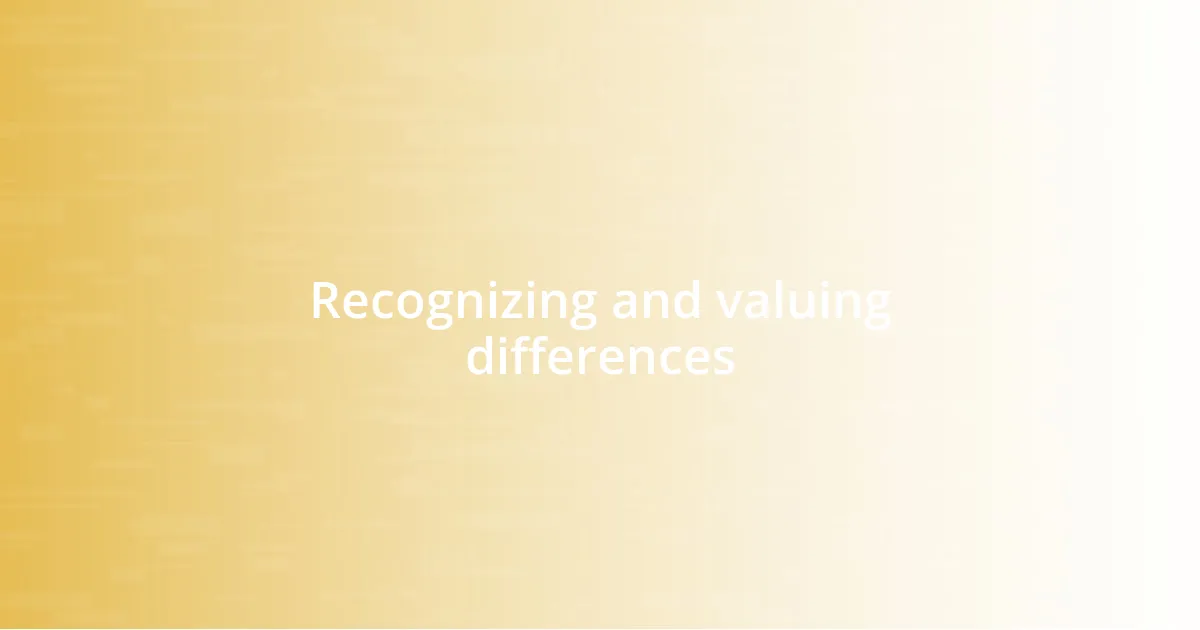
Recognizing and valuing differences
Recognizing and valuing differences within a partnership can be a profound journey. I recall a time when my partner and I discovered how our backgrounds shaped our perspectives on finances. While I was raised in a household that tackled budgeting meticulously, my partner grew up in a more spontaneous financial environment. Understanding this difference wasn’t just an intellectual exercise; it sparked deep conversations about our values and priorities, leading us to a more balanced financial strategy that embraced both of our strengths. Hasn’t it ever amazed you how our differences can actually enrich our lives together?
It’s fascinating to see how valuing each other’s unique traits can transform a relationship. For instance, my partner’s creativity often contrasts with my analytical approach. I used to think of my methodical ways as superior until I realized that when we combined our strengths, the results were something truly special. Last month, we worked on a home project where I laid out the plan while my partner added colorful, artistic touches. The final outcome not only reflected our individual inputs but also celebrated our differences, strengthening our bond in the process. How often do we miss these opportunities to celebrate what makes each of us unique?
At times, I’ve encountered moments where our differing opinions led to disagreements. During one such instance, I noticed how defensiveness crept in, threatening our respect for each other. Instead of letting frustration take over, I chose to pause and appreciate my partner’s viewpoint. I asked myself, “What can I learn from this?” Embracing this mindset not only dismantled the urge to argue but fostered a deeper understanding and trust between us. It’s in these moments of recognizing the value in our differences that we truly learn to respect and cherish each other more.
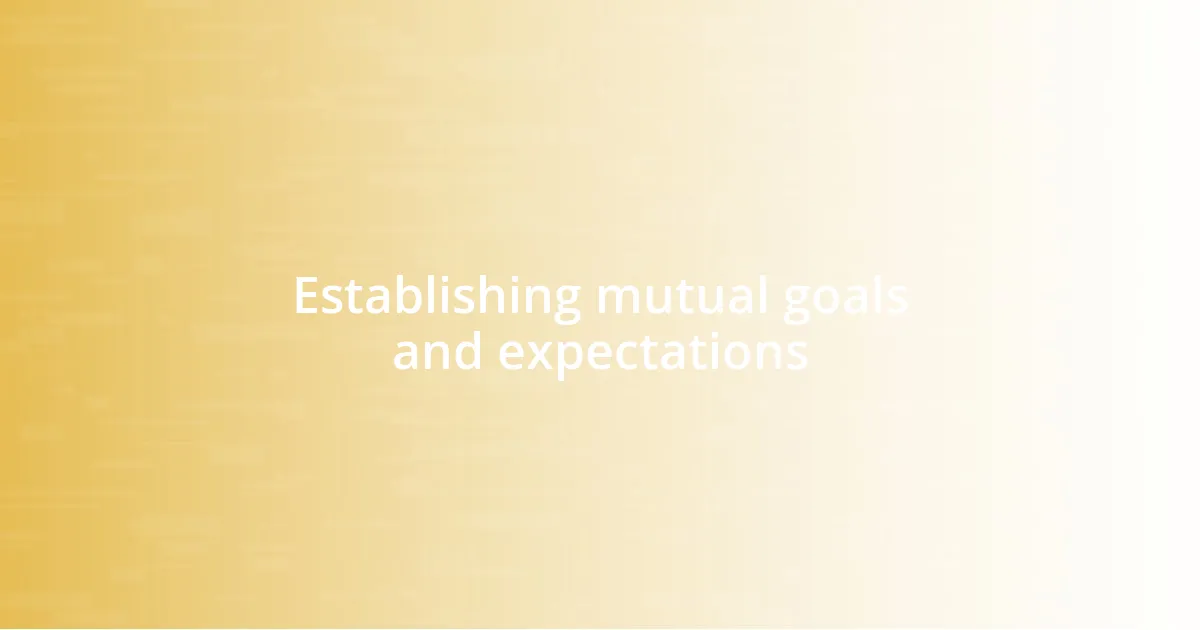
Establishing mutual goals and expectations
Establishing mutual goals and expectations is like laying a strong foundation for a house. I remember discussing our aspirations with my partner over coffee one rainy afternoon. We sat down and shared what we envisioned for our future—traveling to new countries, owning a home, and even pursuing further education. By articulating these goals together, we began to see a clear path forward, turning our dreams into achievable plans. Have you ever felt that thrill when you align on something significant?
In my experience, expectations go hand in hand with goals. Early on in our relationship, we had differing views on how often we should spend time with each other and with friends. I realized it was vital for us to communicate our social needs openly. We started setting expectations around how many weekends we wanted to spend with friends versus each other. It felt refreshing to establish a balance that worked for both of us, reducing the chance of misunderstandings. Don’t you find that expectations can free you from assumptions that might otherwise cause friction?
Moreover, I’ve learned that revisiting these goals and expectations regularly is crucial as life evolves. Just a few weeks ago, we revisited our plans after a significant career change I experienced. My new job required more hours, and we adjusted our timelines to accommodate this shift. It wasn’t just about adapting; it created a sense of teamwork that strengthened our bond. When was the last time you and your partner recalibrated your goals together for the better? Having those discussions fosters a sense of partnership and commitment that reassures both of us—we’re in this together.
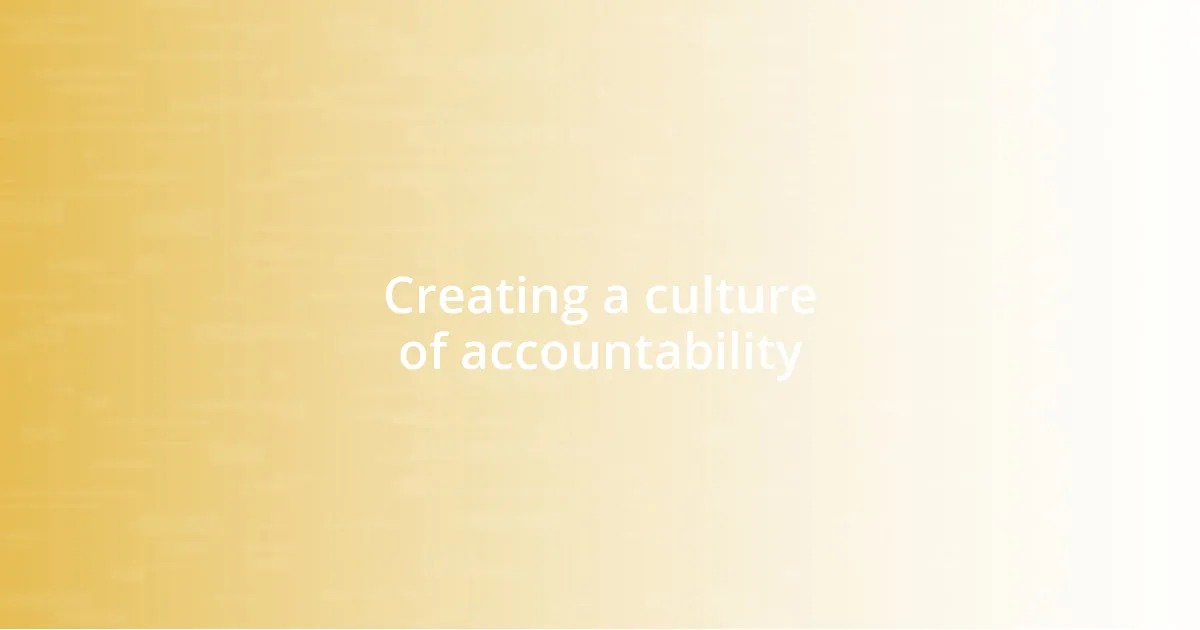
Creating a culture of accountability
Creating a culture of accountability is essential in any partnership. I can recall a moment when my partner and I faced a significant challenge while planning a family event. We had each taken on different responsibilities, but as the day approached, it became clear that our communication had faltered. Instead of pointing fingers, we decided to hold a candid dialogue. We each took responsibility for our roles, discussing what we could do differently next time. Isn’t it amazing how taking ownership can diffuse tension and push a relationship forward?
When we embrace accountability, it cultivates an environment where honesty thrives. I remember a time when I let my partner down by missing an important date. Instead of making excuses, I owned my mistake and expressed my genuine remorse. In my experience, this honesty deepened our trust, as it reinforced the idea that we’re both accountable for our actions. Have you ever noticed how admitting fault can transform an awkward moment into an opportunity for growth?
The process of creating this culture is ongoing, as we continually refine our approach to mutual responsibility. Recently, we agreed to have weekly check-ins to review our tasks around the house. These moments not only keep us accountable but also encourage open communication about what’s working and what isn’t. Sometimes, I even share how I feel overwhelmed by my responsibilities, allowing my partner to help me prioritize. Isn’t it comforting to know that accountability can bring us closer, rather than putting distance between us?
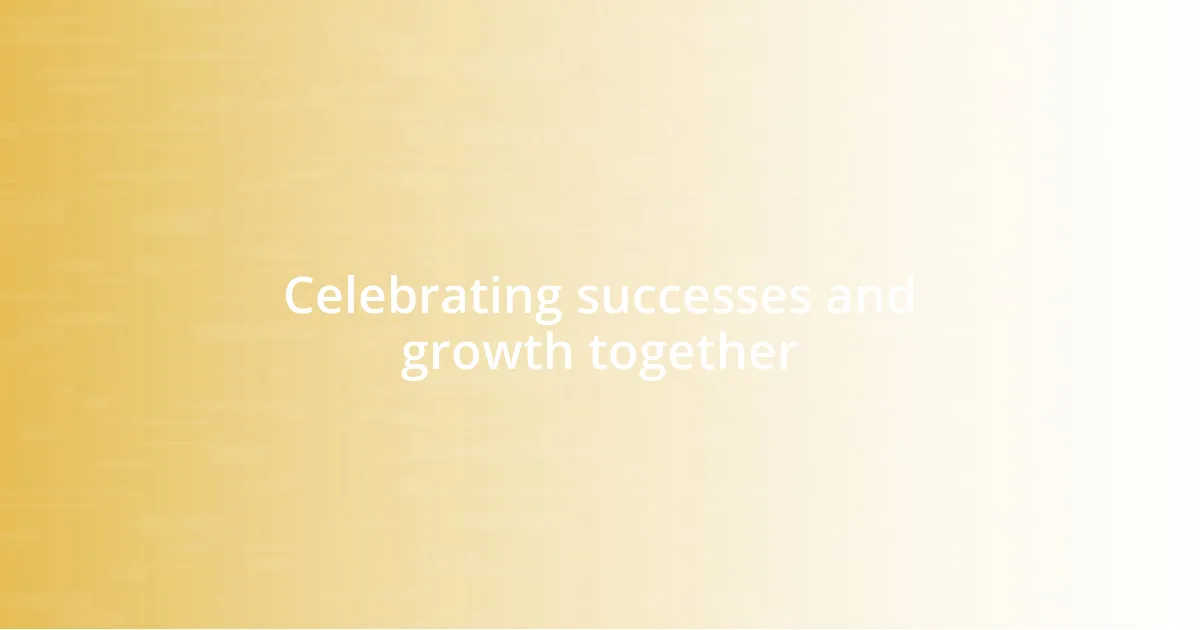
Celebrating successes and growth together
Celebrating successes and growth together is an enriching experience that fosters deeper connections. Just last month, my partner and I celebrated a personal milestone that reminded us of how far we’ve come. As we toasted to my promotion at work, I couldn’t help but feel a swell of gratitude for their unwavering support throughout my journey. Have you ever taken a moment to acknowledge your partner’s role in your achievements? It’s those shared celebrations that highlight the importance of teamwork.
I find that recognizing our growth as individuals makes our bond even stronger. For instance, I vividly remember when my partner achieved a long-sought fitness goal. We organized a little celebration at home, complete with their favorite meal and a cozy movie night. It was a beautiful reminder that, in every success, there’s an underlying story that we share, filled with encouragement and dedication. Have you noticed how celebrating even the small victories can build a solid foundation of respect and admiration?
One valuable lesson I’ve learned is to make these celebrations a regular part of our routine. Whether big or small, each success we share deserves acknowledgment. Just last week, we created a ‘victory board’ in our living room where we post little notes of achievements. Seeing our growth visually is uplifting—it’s a constant reminder of our journey together. How do you and your partner celebrate your accomplishments? Whatever it is, I believe these moments remind us that we aren’t just individuals growing separately, but partners navigating life side by side.

